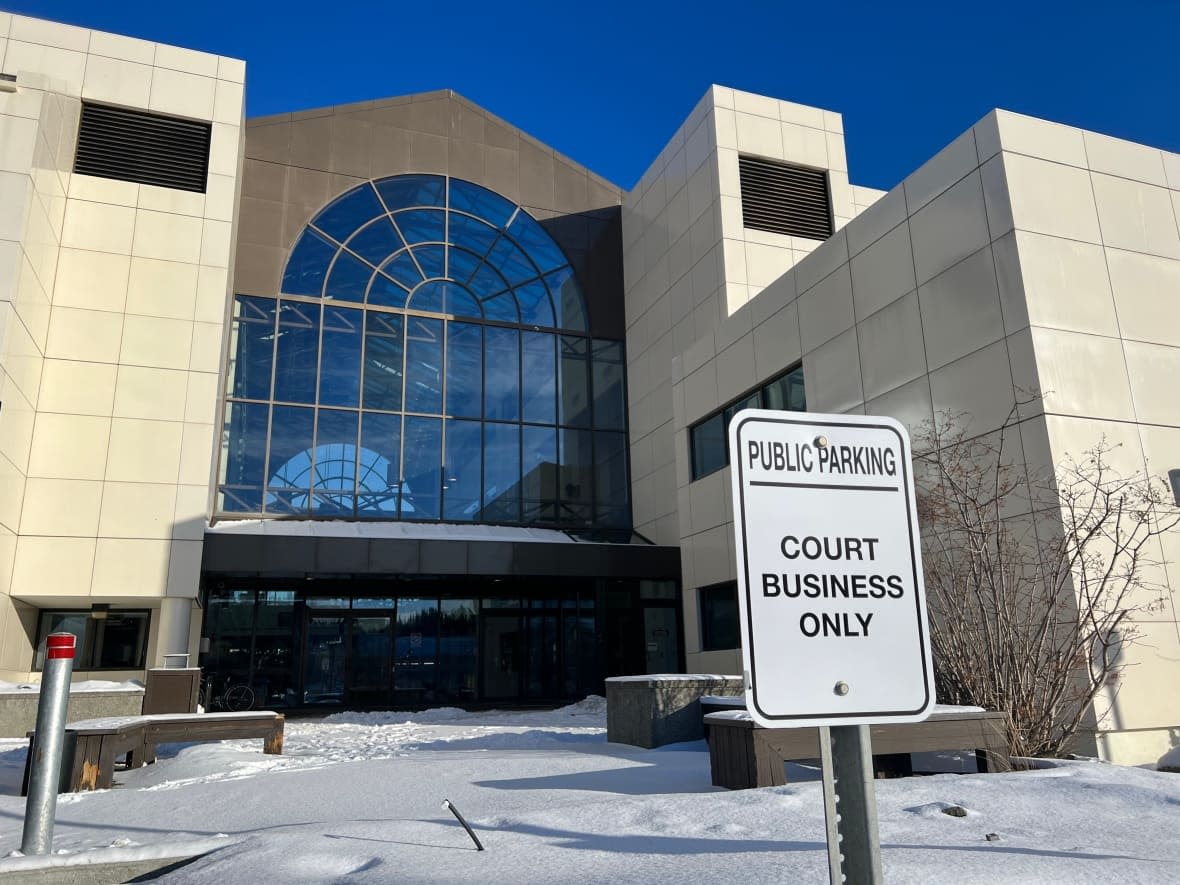Yukon gov't files defence in proposed class-action over alleged use of holds, seclusion at Whitehorse school

The Yukon government has responded to a proposed class-action lawsuit over the alleged improper use of holds and seclusion on students at Jack Hulland Elementary School in Whitehorse over the span of 20 years.
In a statement of defence filed to the Yukon Supreme Court on Monday, the government denies a number of allegations such as school staff being assigned to a team that could be called to place children in holds — where adults use their bodies to restrict a child's movement — or to "drag" children to "isolation" spaces.
It also says the action isn't "suitable" to be certified as a class-action or representative proceeding.
However, the statement acknowledges there were occasions when students were placed in rooms or spaces they couldn't leave without the help of staff, and that the "restriction on their freedom of movement could, in many of these instances, properly be characterized as involuntary."
The statement of defence comes about four months after the parents of two former Jack Hulland students took the territorial Department of Education and the school council to court, with the intent of representing all Jack Hulland students subjected to holds and seclusion between Jan. 1, 2002 and June 30, 2022.
Their lawsuit alleges school staff would routinely place students as young as kindergarten in holds or confine them alone in rooms or small cubicles in response to the children having emotional outbursts or other difficulties. That kind of response was unnecessary and harmed already-vulnerable kids, the lawsuit claims, but had been normalized at the school.
Affidavits filed in support of the plaintiffs' application to have the lawsuit certified as a class action contained further detailed allegations about the alleged treatment experienced by some students and its impact on their wellbeing.
In one case, a former student alleged staff smeared butter on the dividers separating isolation spaces after she tried to climb them, and that her experience at Jack Hulland led to her feeling suicidal by Grade 5 and caused her to drop out of school by Grade 9.
Separately, the CBC spoke to three parents and a former staff member who recounted seeing children being placed in holds or locked alone in a room called the "study hall" when they were having tantrums or minor behavioural difficulties but were not physical threats. All four said that, in their opinion, the children just needed someone to help them calm down and the alleged treatment only made the situations, both in the moment and long-term, worse.
The Jack Hulland school council, to date, has not filed a separate statement of defence. The lawsuit, which has not yet been certified as a class action, also has yet to be tested at trial.
Lawsuit can go ahead but not as class-action, government argues
The Yukon government, in its four-page statement of defence, goes on to refute large portions of the lawsuit, from the existence of "forcible confinement policies" and the claim that behavioural expectations for students were unreasonable to allegations that staff, on occasion, would allegedly keep students in holds for hours. It also denies that staff did not properly inform parents when their children were allegedly placed in holds or seclusion and that the school council, not the education department, was responsible for school operations.
As well, the document takes aim at the "pejorative connotations of the emotive language used" in the lawsuit — such as "seclusion," "isolation cells," "confinement" and "imprisonment" — to describe what the government says were actually "small rooms" built to "provide quiet spaces where students could be away from the stimulus of a group and regain their composure or ability to regulate their emotional responses."

The government, though, does acknowledge that some students "were placed in one of these rooms more than once," including "over a lunch or recess period," and that there were occasions when students couldn't leave "except with the permission or assistance of Staff."
It also says that if any staff at Jack Hulland had used force on a student or restrained or confined a student "in a manner that was excessive or unnecessary" for preventing harm, damage to property or disruptions to school operations, it would be an "actionable wrong" the government would be vicariously liable for.
However, the statement of defence says whether those wrongs actually occurred, and if any of them constituted corporal punishment, can only be properly determined "in relation to the full factual context of that particular instance."
The Yukon government is asking that the action proceed but not as a class action or representative proceeding, and that if the allegations made by the plaintiffs aren't proven, that the case be dismissed with legal costs awarded to the government.


